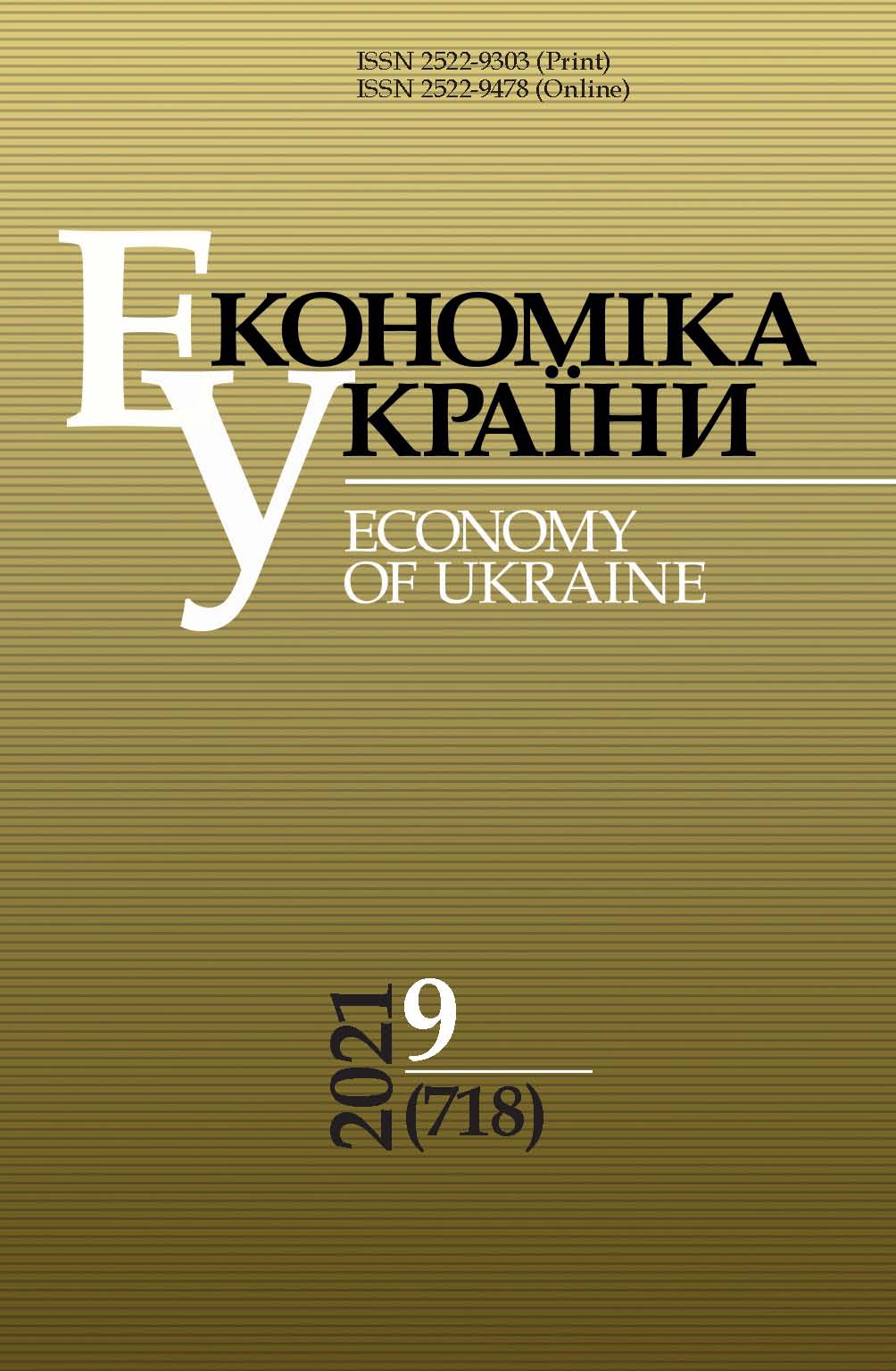SOCIALIZATION IN SOCIAL TRANSFORMATIONS OF LONG-TERM CHARACTER
DOI:
https://doi.org/10.15407/economyukr.2021.09.003Keywords:
state; society; economy; socialization; internalization; “new normality”; globalization; transformation.Abstract
The preconditions and character of the “new normality” in the development of modern society are considered, the main features of which are the rapidity of change and the expansion of conflict, which incessantly dismantles barriers to the so-called “creative disorder.” As a result, public life is chaotic with a still unclear institutional world, where uncertainty and unpredictability, on the one hand, can no longer be limited to decisions of nation-states, and on the other, a set of signs of such normalcy, internalizing, forms dissatisfaction and protest. The set of current changes and social transformations has the characteristic features of the cycle with a special introduction to it and new content. However, there is a coincidence with a number of signs of the “dark centuries” of the Middle Ages. The way out of them was connected both with the socialization of technological transfer of cultural heritage in the process of assimilation of accumulated knowledge, and with the use of cultural capital of the past. All this, through the exteriorization activity of the individual, gave rise to the institutional conditionality for self-realization in the formation of the capitalist world. The possibility of such self-realization formed the basis of the dialectic of the formation and development of the social world of capitalism. Thus, socialization as a process of human assimilation of social ways of life and culture provided then and can provide today a social transformation of long-term nature in terms of movement from the current dominant importance of cosmopolitan universalization of the liberally organized market, which gave rise to the current crisis in society and the economy, to the evolutionary and institutional development of the economy and social transformations, through which there was a way out of the crisis and overcoming the challenges of modernity. The basis of such transformation is the mechanism of transformation of social reality on the basis of socialization on the way to a new social quality as a resource of development.
References
Dynkin A. The World Economy and its Prospects in 2021 (Discussion on the UN Report). Mir Peremen, 2021, No. 1, pp. 83-103 [in Russian].
Bauman Z. The Individualized Society. Moscow, Logos, 2005, available at: socioline.ru/files/5/39/bauman_zigmunt_-_individualizirovannoe_obshchestvo-2005.pdf [in Russian].
Lyotard J.-F. The Postmodern Condition. Moscow, Institute for Experimental Sociology, Saint Petersburg, Aletheia, 1998 [in Russian].
Luhmann N. What is communication? Sociological Journal, 1995, No. 3, pp. 117-124, available at: www.jour.fnisc.ru/index.php/socjour/article/view/190/4126 [in Russian].
Parsons T. The Concept of Society: The Components and Their Interrelations. Thesis, 1993, Iss. 2, pp. 94-122, available at: ecsocman.hse.ru/data/876/582/1217/2_2_1pars.pdf [in Russian].
Luhmann N. Society as a Social System. Moscow, Logos, 2004, available at: yanko.lib.ru/books/cultur/luman-ob_kak_soc-sistema-8l.pdf [in Russian].
Gurevich A. Categories of the Medieval Culture. Moscow, Iskusstvo, 1984, available at: www.al24.ru/wp-content/uploads/2012/07/A._Ya._Gurevich_Kategorii_srednevekovoy_kulturyi._2-e_izd._ispr._i_dop._M._Iskusstvo_1984..pdf [in Russian].
Rostow W. The Stages of Economic Growth. New York, Frederick A. Preger, 1961, available at: vtoraya-literatura.com/pdf/rostou_stadii_ekonomicheskogo_rosta_1961__ocr.pdf [in Russian].
Heyets V. The Phenomenon of Instability as a Challenge to Economic Development. Institute for Economics and Forecasting of the NAS of Ukraine. Kyiv, Akademperiodyka, 2020 [in Russian].
Fukuyama F. Liberalism and its Discontents. The Challenges from the Left and the Right. Mir Peremen, 2021, No. 1, pp. 23-35, available at: www.other-news.info/2020/10/Liberalism-and-its-discontents-the-challenges-from-the-left-and-the-right/ [in Russian].
Ganichev N., Koshovets O. Forcing the Digital Economy: how will the Structure of Digital Markets Change as a Result of the COVID-19 Pandemic? Studies on Russian Economic Development, 2021, No. 1, pp. 19-35 [in Russian].
Kai-Fu Lee. We Are Here To Create. Edge, March 26, 2018, available at: www.edge.org/conversation/kai_fu_lee-we-are-here-to-create (accessed on: 07.02.2021).
Akaev A., Sadovnichy V. The human component as a determining factor of labor productivity in the digital economy. Studies on Russian Economic Development, 2021, No. 1, pp. 45-58 [in Russian].
Blommaert T., Van den Broek S. Management in Singularity: From Linear to Exponential Management. Moscow, Alpina Publisher, 2019 [in Russian].
Polterovich V. Crisis of institutions of political competition, Internet and collaborative democracy. Voprosy Ekonomiki, 2021, No. 1, pp. 52-72 [in Russian].
Woźniak M.G. Gospodarka Polski 1918–2018. Tom 1. W kierunku zintegrowanego rozwoju. UR Journal of Humanities and Social Sciences, 2019, No. 2 (11), pp. 179-201, available at: repozytorium.ur.edu.pl/bitstream/handle/item/5451/9%20grata-micha%c5%82%20gabriel%20wo%c5%baniak.pdf?sequence=1&isAllowed=y [in Polish].
Pavlenko Yu. History of World Civilization. Philosophical Analysis. Kyiv, Feniks, 2002, available at: www.twirpx.com/file/1820864/ [in Russian].
Downloads
Published
How to Cite
Issue
Section
License
Copyright (c) 2024 Economy of Ukraine

This work is licensed under a Creative Commons Attribution-NonCommercial-NoDerivatives 4.0 International License.



